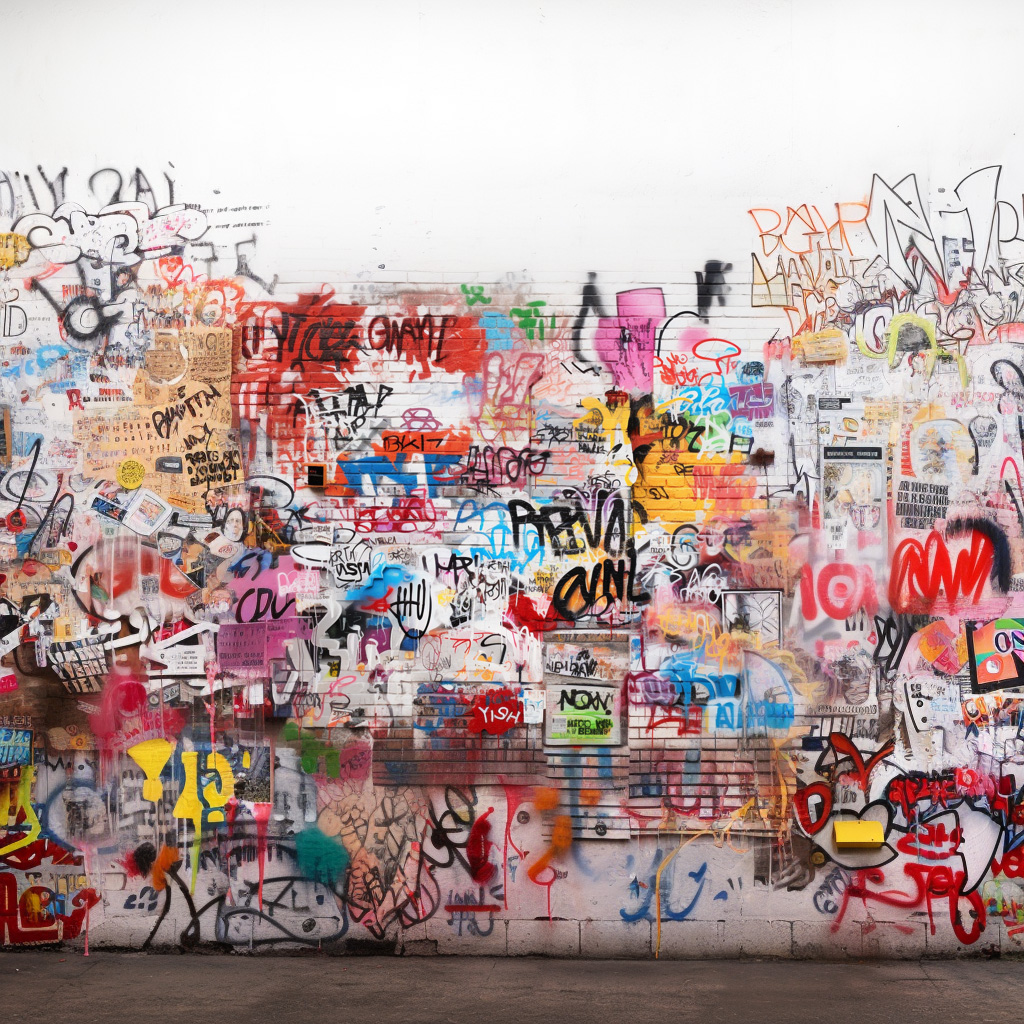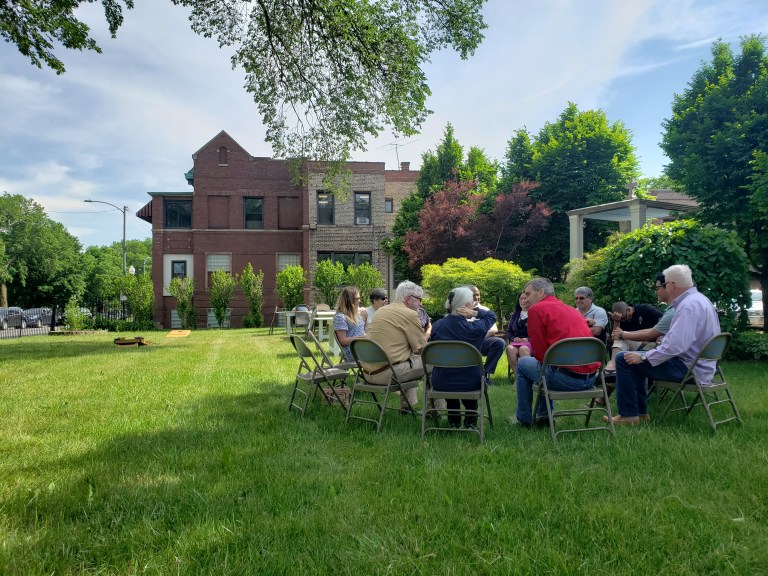Breaking down the walls because ‘tú eras mi otra yo’
I once stood near the United States-Mexico border. In the journey to this edge, I witnessed the evidence of militarization: guns, checkpoints, armored vehicles, cameras. The steel fence rose from the sandy earth like a misplaced mountain. I felt my body tense from the feeling of surveillance. I felt the unease and sorrow that seemed to hover in the dry desert air.
This was a little over two years ago, when I visited Nogales, Arizona/Nogales, Mexico as a participant in the 2016 Border Convergence. In the shadow of the giant steel fence, I prayed and protested along with other Catholic Sisters and members of Giving Voice.

Since that time much has happened in my life, including earning a MA in pastoral studies from Catholic Theological Union in Chicago. At my graduation last May, I loved hearing this speech from one of the recipients of an honorary degree: Msgr. Arturo Bañuelas from El Paso, Texas, a pastor, educator, theologian, advocate for migrants and refugees and founder of the Tepeyac Institute.
In his speech, Msgr. Bañuelas centered his comments around the meaning of the Spanish phrase he learned from his grandmother: “tú eras mi otra yo” or “you are my other me.” According to Bañuelas, when we see our humanity wrapped up in the being of others, we see how “walls between us threaten our sacred bounds” because “oneness with each other is oneness with God.”
As I understand it, a community of any type cannot know oneness if those who are poor and marginalized are not included, honored, respected. We come to know God and ourselves through the poor. In Bañuelas,’ words, “there is no conversion to God if there is no conversion to the poor. Through their eyes we see what Jesus sees, a life rich in beauty, value, and meaning.”
Since my graduation in May, Bañuelas,’ words have remained a steady challenge to me. I often ponder if my life is being converted more to the poor; if they are my center and path to knowing God more deeply. I think about during my visits to the county jail. I think about it during my drives around rural America. As a retreat minister, I often wonder how I’m going to help others know the sacredness of the other. I also consider the Christian call when I observe the divides in society, the collapse of connections over political aisles and the evidence that even the ecosystems are feeling the torment of conflict. How can we build more inclusive societies? How can we tend to the most vulnerable among us?
Then, a couple of weeks ago, I stood in front of a group of teens preparing for confirmation in the Catholic Church. I read this aloud:
“In salvation history, the Lord saved one people. We are never completely ourselves unless we belong to a people. That is why no one is saved alone, as an isolated individual. Rather, God draws us to himself, taking into account the complex fabric of interpersonal relationships present in a human community. God wanted to enter into the life and history of a people.” – Pope Francis (Gaudete et Exultante, paragraph #6)
In other words, not only is our humanity bound up in one other but our salvation is too. If we are divided and not caring for one another across borders and divides, none of us will be able to experience the fullness of God’s reign. We are a Church, a people, a community only as strong as the most marginal and weak among us. This is what it means to be part of the Body of Christ. This is the stuff of South African spirituality called Ubuntu, which means “I am who I am because of who we all are” and “I am a person because I belong.” It’s “tú eras mi otra yo” put another way.
Visiting each side of the border two years ago with my peers, I encountered the sacredness of a community and the goodness of God’s creation. The heat of the sun and the desert life growing in abundance testified to the truth that God did not create borders. God created the beauty of humanity, the glories of nature. And humanity and nature is all communal, like God, the Trinity.
God’s has designed us for unity, communion, community; we cannot be made whole if knowing one another demands crossing through splits and divides, if we must conquer walls and fences in order to bond as neighbors.
Building unity demands tearing down the walls and advocating for justice. As Bañuelas says, “tú eras mi otra yo” means “Our hearts and our lives shrivel when remain silent about the silence of others.” And, “tú eras mi otra yo” … “is the lived courageous hope not afraid to take a stand for justice, knowing that each stand removes a brick from injustice until it all comes tumbling down … because love always wins.”
Now is the time to cross the canyons split into our civility. Breaking down the walls will strengthen our society. We need each other because we are human, because we are the people of God.
With the walls down, let us look into the face of the poor and come to see God — doing so means better knowing ourselves, because “tú eras mi otra yo.” And it means, wonderfully, that we will not be the same.
“There is an innate part of God in each of us that needs to be honored and respected always. When we listen with our hearts and share in solidarity with the sufferings, the struggles the hopes and dreams of the poor, our lives are shaped anew. Our theology and ministry formation finds its deepest meaning. Our passion for living explodes into shouts of joy and a new person, a new humanity is born. The poor show us that when we are together as one we are invincible in justice, peace, hope and reconciliation.” – Msgr. Arturo Bañuelas (Catholic Theological Union graduation, 2018.)
Changed hearts and lives, strengthened communities and Church, with the walls broken down there will be no more borders to visit or neighbors to fear. We are closer to God and encounter all people seeing clearly that “tú eras mi otra yo.”

YOU ARE INVITED TO THE 2018 SOAW BORDER CONVERGENCE
The third mobilization at the border in Nogales, Arizona/Sonora Mexico is Nov. 16-18, 2018!
“Our move to the border responds to the present-day call to solidarity in Latin America. The mobilization at the border in Nogales is one more way to fight for the closure of the School of the Americas/WHINSEC and an end to U.S. intervention in Latin America. The third bi-national Encuentro at the militarized U.S./Mexico border aims to build the grassroots power necessary to challenge the racist statutes quo and push back against U.S. intervention in Latin America.”
Details are here: http://www.soaw.org/border/







I love this post so much. It reminded me a lot of the themes throughout Laudato si. Indeed, we see the true glory of God when we see the humanity in all. Thank you for sharing!!